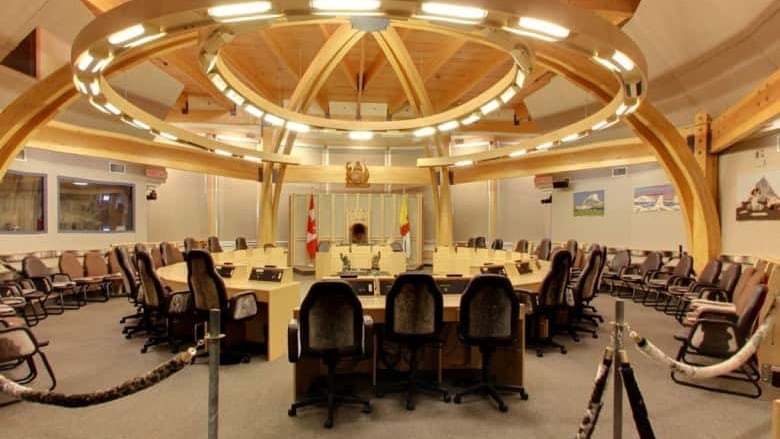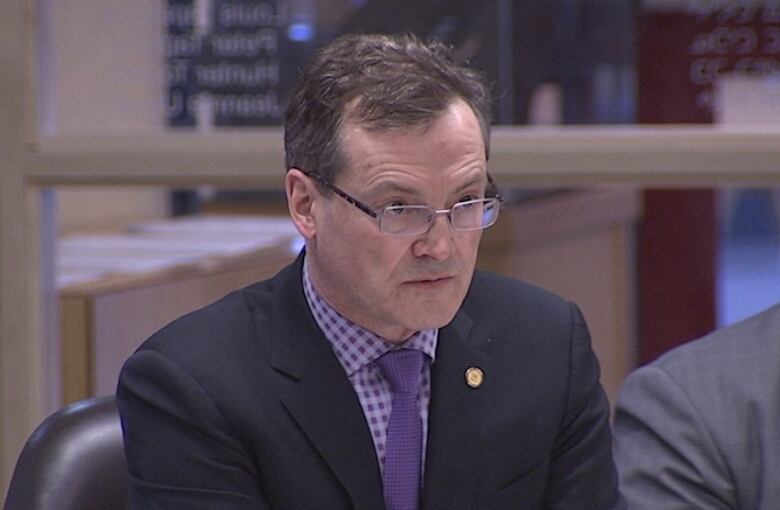Little hope left for Iqaluit's stalled hydroelectric dam project
Nunavut writes off $10M in initial costs for the dam project, which is 'permanently on hold'

With a price tag of between $300 million and $500 million, it would take a change in political will — and a massive cash infusion — to resurrect Iqaluit's hydro dam project, says Nunavut's finance minister.
It's been more than a year since the territory decided to put the project on hold.
"It's not to say that the project initiative could not commence again in the future," Keith Peterson told MLAs earlier this month.
"It may be that in the future the political direction would come from cabinet to look at hydro energy in Nunavut or in Iqaluit. It may direct the Qulliq Energy Corporation to look at solar energy, tidal energy, wind energy, all matters of energy."

When that happens, Peterson said the government would need to look to the private sector or federal investors for help.
For now, the government isn't "actively looking" for financing.
The hydroelectric project is "permanently on hold" — a seeming oxymoron which frustrated some members of the legislature.
A 'huge amount' already spent
The discussion was prompted by a line item in Bill 21, the act outlining government assets to be written off for last year.
MLAs were asked to forgive more than $10 million in expenditures on the project that were made between 2005, when the Qulliq Energy Corporation began looking into the project, and 2015, when it was officially shelved.
"Just for further information, the $10 million is a huge amount to me," said Tununiq MLA Joe Enook, in Inuktitut.

"You used a great amount of money and you're asking us to forgive you for using that money."
Peterson said the government really has no choice but to write off those costs, explaining that it was really an "accounting treatment to clean up the books" proposed by the Office of the Auditor General of Canada.
He added that the money wasn't wasted.
"Some of the work that has been done over the years — the studies, the engineering work, and other research that has gone into this the $10 million and change has paid for — may be usable in the future towards that project."
Market conditions have changed
If the project went forward now, Johnny Mike, the minister responsible for QEC, saids the utility would need to carry the financial burden.
"QEC would have to recoup this cost through the existing electrical rates charged to their clients," he said in Inuktitut. "Based on the current rates, QEC would not be able to pay for this project even if it was approved."
At the outset, the project was seen as a way to lessen the territory's reliance on expensive diesel fuel.
Now, Premier Peter Taptuna is pointing to other priorities.
"This particular infrastructure, which is going to cost in the hundreds of millions, is not going to bring the cost of living down for our residents of Nunavut," he told MLAs.
"It's simply a factor where we do not build infrastructure [which] increases the cost of our living in the territory."
Plus, Taptuna said the price of oil has substantially decreased.
QEC adding oversight to major projects
David Joanasie, the MLA for South Baffin, said writing off the funds felt like putting $10 million on an iceberg and watching it float away.
"I don't want to see this occur again within the government," he said in Inuktitut.
Peterson said QEC has put some work into this area, adding more oversight to projects before they get to an advanced stage.
At the end of the discussion, MLAs agreed to write off the amount, without finding out whether the project will eventually be restarted.
"I can't state with any degree of certainty where this will go in the future," said Peterson.